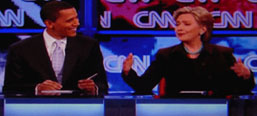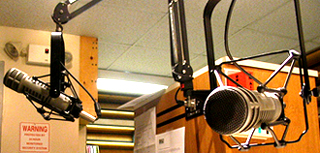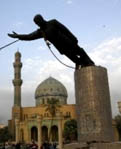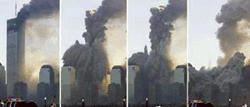
Presidential Death Match: Media’s Big Event
Presidential elections have been media spectacles for almost 50 years, roughly since television became the national drug. One landmark 1960 production, arguably the first televised "presidential death match," pitted Jack Kennedy, an Arthurian figure to be sure, against Dick Nixon, doing a creepy Richard III imitation. Their TV debate is said to have turned the tide, but the election itself was questionable, and high Camelot hopes were cut short by assassination and war.





